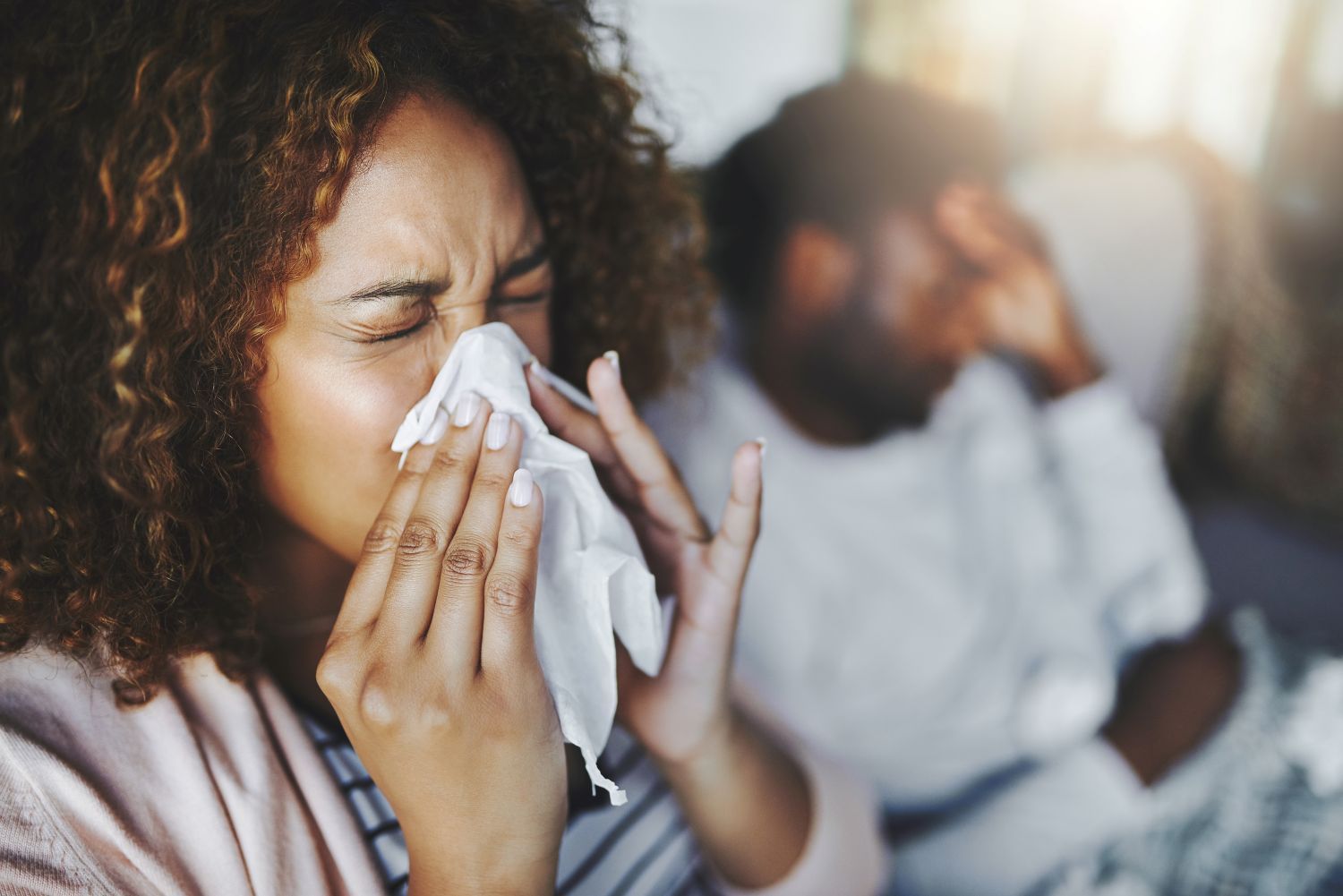Which Is the Best Way to Deal with Allergies?
Over 50 million Americans experience allergies each year, making it the 6th leading cause of chronic illness in the U.S. Whether it's pollen, dust, pet dander, or certain foods, millions of people struggle with allergic reactions daily. But what’s the best way to deal with allergies? Should you rely on medications, natural remedies, or lifestyle changes?
Let’s break down the most effective strategies backed by science and expert recommendations.
Why Do Allergies Happen?
Allergies occur when your immune system overreacts to harmless substances (allergens) like pollen, mold, or certain foods. Your body releases histamine, causing symptoms like:
- Sneezing & runny nose
- Itchy, watery eyes
- Skin rashes (eczema, hives)
- Wheezing or asthma flare-ups
- Severe reactions (anaphylaxis in extreme cases)
Common Types of Allergies
- Seasonal Allergies: Often called hay fever or allergic rhinitis and caused by pollen from trees, grasses, and weeds
- Food Allergies: Reactions to specific foods like nuts, shellfish, or dairy
- Pet Allergies: Triggered by proteins found in an animal’s skin cells, urine, or saliva
- Dust Mite Allergies: Caused by tiny creatures living in household dust
- Insect Sting Allergies: Reactions to bee or wasp stings
Best Ways to Deal with Allergies
1. Avoidance: The First Line of Defense
The simplest and often most effective method is to avoid allergens whenever possible.
- For pollen: Keep windows closed during high pollen seasons, use air conditioning with a HEPA filter, and avoid outdoor activities during peak pollen times
- For dust mites: Wash bedding weekly in hot water and use allergen-proof mattress covers.
- For pet allergies: Keep pets out of bedrooms and bathe them regularly.
- For food allergies: Strictly avoid known food allergens and read labels carefully.
2. Over-the-counter (OTC) Medications
When avoidance isn’t enough, medications can help. Common options include:
- Antihistamines: These block histamine, a chemical your body releases during an allergic reaction. Examples include loratadine (Claritin) and cetirizine (Zyrtec). A study published in the Journal of Allergy and Clinical Immunology shows second-generation antihistamines provide symptom relief with fewer side effects.
- Nasal corticosteroids: Sprays like fluticasone (Flonase) reduce inflammation in nasal passages
- Decongestants: Help reduce swelling and congestion but should be used for short-term relief
- Eye drops: Relieve itchy, watery eyes
3. Immunotherapy: Allergy Shots and Tablets
For long-term relief, immunotherapy is a proven option. This treatment gradually exposes your immune system to small amounts of the allergen to build tolerance.
- How it works: Small doses of allergens are injected over three to five years, helping your body build tolerance.
- Effectiveness: Studies show that 85% of patients see significant improvement.
- Alternative: Sublingual immunotherapy (SLIT) – Allergy tablets under the tongue (approved for grass & ragweed).
4. Natural Remedies and Lifestyle Adjustments
Many people look for natural ways to ease allergies. While research is ongoing, some approaches show promise:
- Saline nasal rinses: Flushing nasal passages with saline can clear out allergens and mucus.
- Butterbur: Some studies suggest this herb may reduce symptoms just like antihistamines do, but you should consult your doctor before using it.
- Maintain a healthy diet and manage stress: Both can support your immune system.
Always consult a doctor before trying herbal supplements—some can interact with medications.
When Should I See a Doctor for Allergies?
If your symptoms are severe, worsening, or interfering with daily life despite over-the-counter treatments, it’s time to consult an ear, nose, and throat specialist or an allergist. They can perform tests to pinpoint triggers and recommend personalized treatment plans.
Quick Allergy Facts and Stats
| Fact | Statistic/Info |
|---|---|
| People affected worldwide | Over 400 million (World Allergy Organization) |
| Seasonal allergy prevalence in US | About 30% of adults (CDC) |
| Economic impact | Over $18 billion annually in the US due to missed workdays & medical costs (AAAAI) |
| Effectiveness of immunotherapy | Up to 85% symptom improvement in many patients |
What’s the Best Strategy to Deal with Allergies?
There isn’t a one-size-fits-all answer because allergies and their symptoms vary widely among individuals. The best approach often combines:
- Avoiding allergens when possible.
- Using appropriate medications.
- Considering immunotherapy for lasting relief.
- Trying safe natural remedies where appropriate.
- Consulting healthcare professionals for tailored advice.
By understanding your allergies and working with your ENT doctor, you can take control and enjoy life more comfortably—no matter the season.
If you find this helpful, feel free to share it with friends or family who might also be searching for allergy relief tips!













